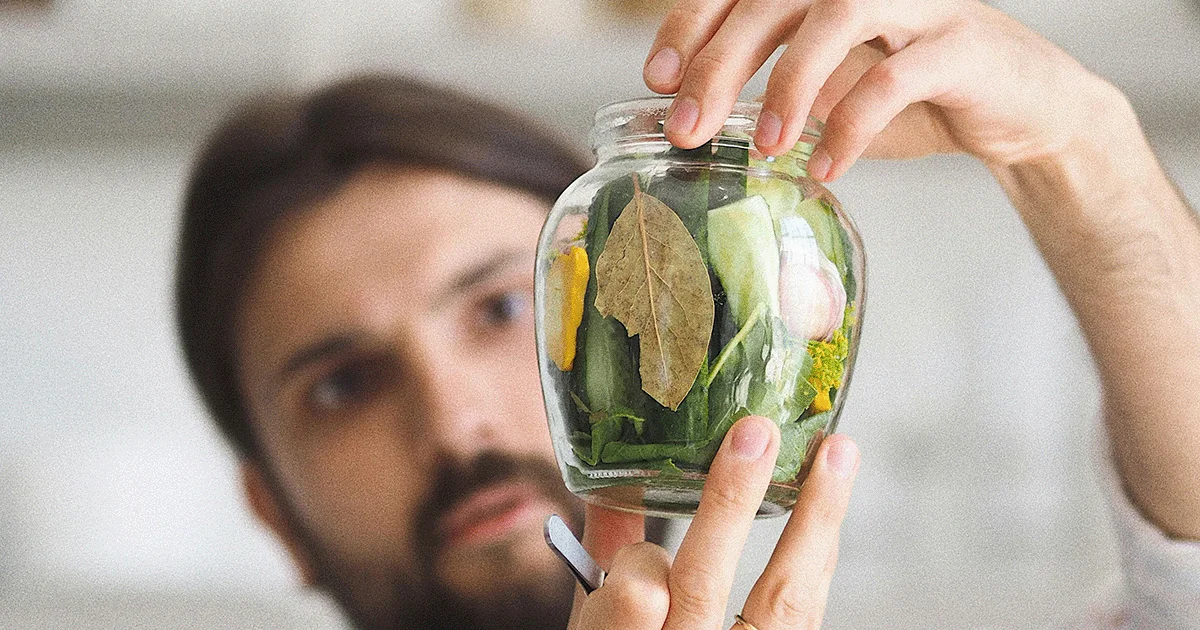Here's what we'll cover
Here's what we'll cover
More options aren’t always a good thing. The vitamin aisles are packed with so many different brands of multivitamins that deciding what to choose can make you dizzy.
If you’re on the hunt for vitamin D, there are three types: D2, D3, and vitamin D with K2. If you’re wondering which supplement you need (or if you need one at all), here’s a breakdown of each type. We’ll also take a look at why vitamin D and K2 are a popular pairing.
The connection between vitamin D and K2
Vitamins D and K both play important roles in building strong, healthy bones. This is often why you see them packaged together.
Vitamin D enables the body to absorb calcium from your gut, and vitamin K helps get that calcium into your bones (Chauhan, 2020; Maresz, 2015). Problems can happen if calcium builds up in the wrong places, making vitamin K’s job essential.
Getting enough K2 keeps blood vessels healthy by preventing buildups of calcium. Our bodies can usually take care of this buildup, but not like it should people with a vitamin K deficiency (Maresz, 2015).
Who this supplement may help
If you’re at high risk of developing osteoporosis, a vitamin D supplement that contains K2 may be a good idea.
Past research shows that taking a combination of vitamin D, calcium, and vitamin K can help improve bone mineral density (Schwalfenberg, 2017). A healthcare provider may also suggest a K2 supplement if you’re on higher doses of vitamin D (Abouodah, 2021).
If you’re deficient in vitamins D and K, a supplement containing both may be an effective way to kill two birds with one stone––well, the vitamin version of that.
Some worry about taking vitamin D if they have low levels of vitamin K. If there’s not enough vitamin K to direct calcium out of the bloodstream, it could lead to excess calcium in the lining of the blood vessels (Maresz, 2015). While this could be a concern, there’s no clear scientific consensus on it yet.
Do I need a vitamin D supplement?
If you’re getting enough vitamin D from food, you probably don’t need a supplement.
Before seeking out a supplement, incorporate more vitamin D-rich foods rich into your diet. Most milk in the United States is fortified with vitamin D, although other dairy products like cheese and yogurt are not.
Fatty fish, such as salmon, mackerel, and tuna, are excellent sources of dietary vitamin D. If you don’t like fish, don’t fret––many other foods including breakfast cereals, orange juice, and plant-based alternatives (like oat and soy milk) typically have vitamin D added (NIH, 2021).
Even though we make vitamin D from the sun (which is why it's called the sunshine vitamin) this isn’t a good way to raise your levels. Simply put, there’s no safe recommendation for time spent outside in the sun without sunscreen.
Choosing food sources or supplements is an easy way to raise your vitamin D levels without increasing your risk of skin cancer.
How to get enough vitamin K from your diet
As with vitamin D, you probably don’t need to supplement with vitamin K unless it’s recommended by a healthcare professional.
There are two naturally occurring forms of vitamin K. Vitamin K1 is common in plant products, while K2 is found in animal and fermented products. Meat, cheese, and eggs are all examples of dietary sources chockful of vitamin K2.
Vegetarians and vegans have options, too. Leafy greens like spinach, kale, and broccoli all provide K1, and fermented soybeans (like natto, a Japanese dish) contain dietary vitamin K2 (Imbrescia, 2021).
Who should not take vitamin K
Don’t take vitamin K if you’re on blood thinners such as warfarin. In fact, you may need to limit your dietary K as well.
Your healthcare provider may prescribe blood thinners when they believe you’re at risk of forming blood clots, which can cause major medical issues if they travel to your heart, lungs, or brain. Vitamin K helps your blood clot, meaning it interferes with how well these medications work (Imbrescia, 2021).
You should also avoid supplementing with vitamin K if you have a genetic blood clotting condition or kidney problems as it increases the risk of clots. If your doctor puts you on a diet to limit vitamin K intake, it’s crucial to follow their recommendations (Imbrescia, 2021).
Types of vitamin D supplements
As you know from scanning the supplement aisle, there are plenty of options for vitamin D that don’t include K2.
Two forms available are vitamin D2 and D3. Many D3 supplements aren’t vegan-friendly since they’re made by exposing lanolin from sheep’s wool to UVB rays (Holick, 2007). Vitamin D3 raises blood levels more effectively, but both forms are well absorbed by the body (Sizar, 2021).
D2 can also effectively raise your blood levels of vitamin D––as long as you’re taking your supplements consistently. Consistency should be your top concern if you rely on supplements to avoid a deficiency. If that means taking vitamin D gummies or using liquid vitamin D drops, that’s fine too. These other forms are also effectively used by the body to raise low levels of vitamin D.
DISCLAIMER
If you have any medical questions or concerns, please talk to your healthcare provider. The articles on Health Guide are underpinned by peer-reviewed research and information drawn from medical societies and governmental agencies. However, they are not a substitute for professional medical advice, diagnosis, or treatment.
Abouodah, H., Douglas, L., Ho, B., Bhattacharya, R., Wolf, E., Wang-Weinman, T., . . . Aires, D. (2021). Vitamin K2 Awareness in Sun-Protected Patients Supplementing With Vitamin D. Journal of Drugs in Dermatology, 20 (2), 228-229. doi:10.36849/jdd.5829. Retrieved from https://europepmc.org/article/med/33538554
Chauhan, K., Shahrokhi, M., & Huecker, M. R. (2021). Vitamin D. StatPearls Publishing. Treasure Island, FL. Retrieved from https://www.ncbi.nlm.nih.gov/books/NBK441912/
Holick, M. F. (2019). The D-Sparaging of Vitamin D2: How Physiologically and Pharmacologically Relevant Is It for the Clinician? The Journal of Clinical Endocrinology & Metabolism , 105 (4), e1913–e1915. doi:10.1210/clinem/dgz290. Retrieved from https://academic.oup.com/jcem/article-abstract/105/4/e1913/5685004
Imbrescia, K., & Moszczynski, Z. (2021). Vitamin K. StatPearls Publishing. Treasure Island, FL. Retrieved from https://www.ncbi.nlm.nih.gov/books/NBK551578/
Marcinowska-Suchowierska, E., Kupisz-Urbańska, M., Łukaszkiewicz, J., Płudowski, P., & Jones, G. (2018). Vitamin D Toxicity-A Clinical Perspective. Frontiers in Endocrinology , 9, 550. doi:10.3389/fendo.2018.00550. Retrieved from https://www.ncbi.nlm.nih.gov/pmc/articles/PMC6158375/
Maresz, K. (2015). Proper Calcium Use: Vitamin K2 as a Promoter of Bone and Cardiovascular Health. Integrative Medicine: A Clinician’s Journal, 14 (1), 34-39. Retrieved from https://www.ncbi.nlm.nih.gov/pmc/articles/PMC4566462/
National Institutes of Health (NIH). (2021, March 22). Office of Dietary Supplements - Vitamin D. Retrieved March 30, 2021 from https://ods.od.nih.gov/factsheets/VitaminD-Consumer/
Schwalfenberg, G. K. (2017). Vitamins K1 and K2: The emerging group of Vitamins required for human health. Journal of Nutrition and Metabolism, 1-6. doi:10.1155/2017/6254836. Retrieved from https://www.hindawi.com/journals/jnme/2017/6254836/
Sizer, O., Khare, S., Goyal, A., Bansal, P., & Givler, A. (2021). Vitamin D Deficiency. StatPearls Publishing. Treasure Island, FL. Retrieved from https://www.ncbi.nlm.nih.gov/books/NBK532266/










